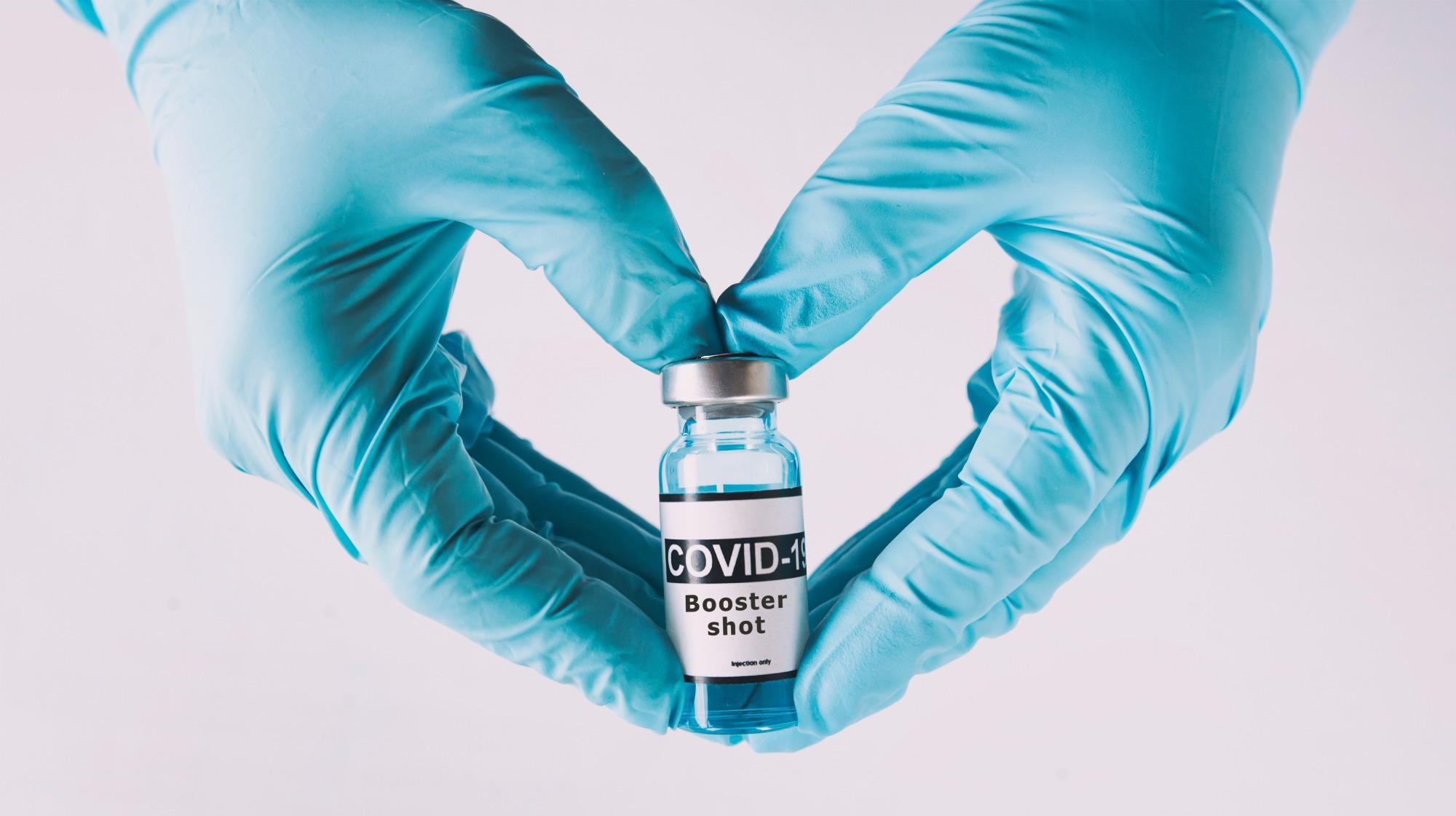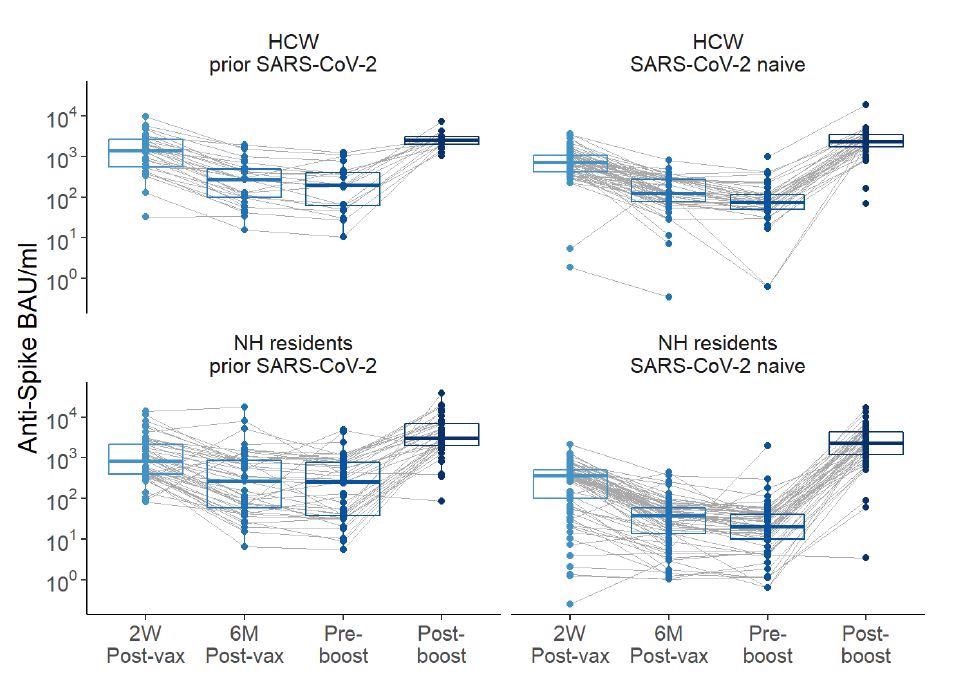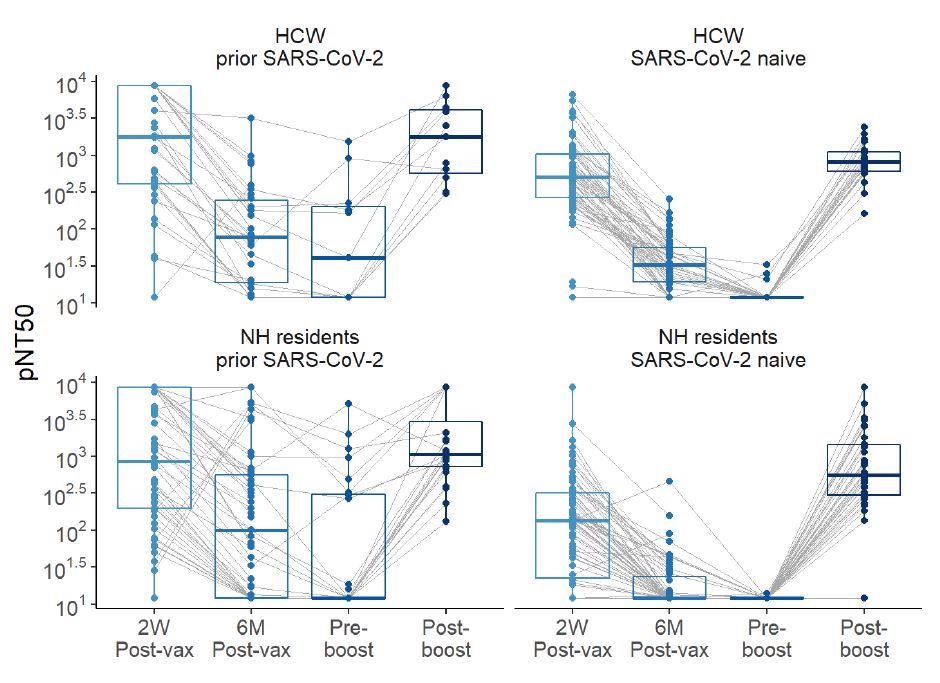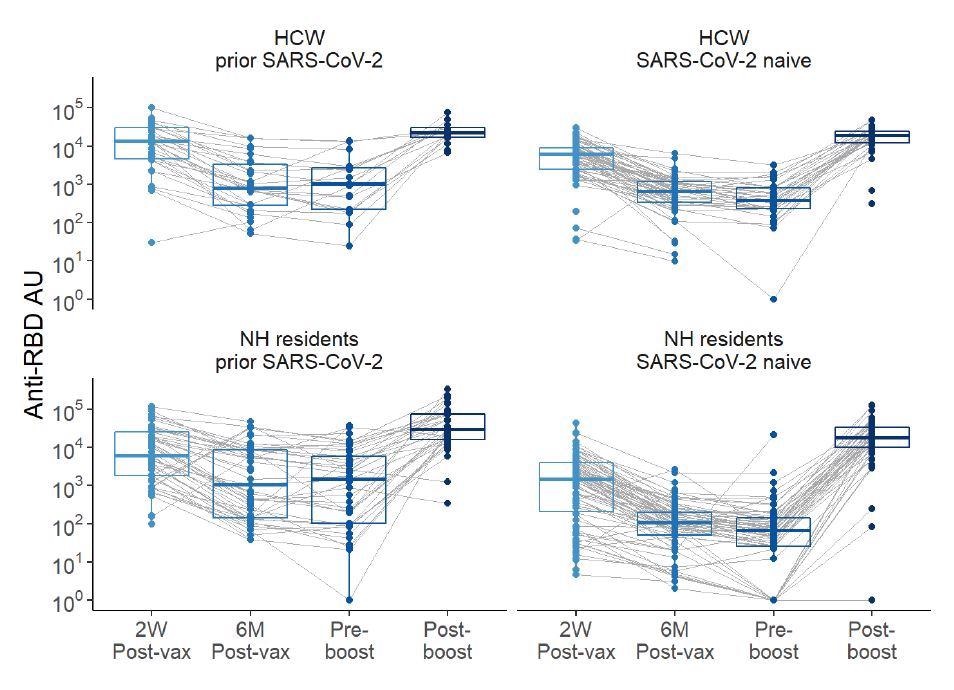
Read This On Our Main Website: https://psoec.com/elevated-neutralization-antibodies-in-nursing-home-residents-after-covid-19-mrna-boosters/?feed_id=1931&_unique_id=61b18d9aae3cd
[ad_1]
As a results of the extreme acute respiratory syndrome coronavirus 2 (SARS-CoV-2), there was important morbidity and mortality amongst nursing residence residents through the coronavirus illness 19 (COVID-19) pandemic.
Initially, the prioritized vaccination marketing campaign for NH residents was capable of provide passable safety towards COVID-19-associated morbidity and mortality. Over time, nonetheless, nursing residence residents grew to become susceptible to groundbreaking SARS-CoV-2 incidences once more as vaccine-induced antibody ranges subsided.
Researchers from the USA of their present examine on the preprint server medRxiv *, examined the humoral responses to the third dose of vaccine in nursing residence residents and caregivers (HCW) and located that this second booster dose (or third dose of vaccine) considerably elevated the anti-spike, anti-receptor binding area (RBD), and neutralization titers in nearly all Nursing residence residents and HCW to considerably increased values than was achieved after finishing the primary collection of vaccinations with two doses.

Antibody ranges developed from commonplace two-dose immunization collection decreased in nursing residence residents and HCW. by> 80%
According to a earlier examine by the identical crew, antibody ranges and neutralization titers in nursing residence residents who accomplished two-dose collection of BNT162b2 (Pfizer-BioNTech) mRNA vaccination decreased greater than 80% inside six months of vaccination. 57% had no neutralizing antibodies even detectable. HCWs additionally confirmed a lower of over 80% even when they'd a historical past of SARS-CoV-2 an infection.
This marked lower in humoral safety uncovered residents to the chance of a breakthrough an infection with SARS-CoV-2 and prompted the approval of booster doses for nursing residence residents.
There aren't any experiences of post-booster titers within the extra frail and disabled nursing residence inhabitants. Therefore, the crew underneath the joint management of Dr. David H. Canaday and Dr. Stefan Gravenstein performed this examine to research the impact of boosting humoral immunity in nursing residence residents and HCWs who reside of their rapid neighborhood.

What did the researchers do?
Serum samples have been taken inside 14 days earlier than and 14 ± 3 days after the second BNT162b2 mRNA booster dose from 85 nursing residence residents (imply age 77) and 44 HCWs (imply age 50) from three nursing houses for which the serum samples have been taken after the preliminary SARS - CoV-2 BNT162b2 mRNA vaccine collection have been out there.
IgG antibodies to spike protein and its RBD have been quantified. Neutralizing antibody titers have been decided utilizing lentiviral particles pseudotyped with spike protein based mostly on the Wuhan pressure.
Geometric imply rise (GMFR) was assessed from earlier than to after the booster and from two weeks after the primary vaccination to after the booster utilizing the log-transformed values of the change in titer folds.
Study outcomes
Former nursing residence residents contaminated with SARS-CoV-2 and infection-naive nursing residence residents and HCWs achieved increased anti-spike antibody, anti-RBD antibody and neutralization titers than two weeks after their first vaccination collection after the second booster, which this second booster exhibits highest antibody titer so far.

"We are encouraged by the realization that most of even this debilitated and multimorbid NH group can ultimately immunologically build a sizeable antibody response to these vaccines," the crew emphasizes.
Infection-naïve nursing residence residents who had the bottom preliminary vaccination response and antibody titers six months later after booster had a strong GMFR of 9.3 in anti-spike antibody ranges and a GMFR of 6 in neutralization titre from their earlier peak titers two weeks after the primary Vaccination collection.

A earlier report, which helps the prospect that anti-spike antibody titre is a vital correlate of safety, steered that anti-spike antibody titers of 264 BAU / ml could confer 80 p.c safety towards symptomatic an infection.
Notably, the present examine discovered that 95% of nursing residence residents achieved these antibody ranges after the second booster dose, in contrast with solely 81% two weeks after the primary collection of two doses.
In addition, the geometric imply titers (GMT) of anti-spike antibodies elevated to 1977 BAU / ml after the second booster dose in comparison with solely 212 BAU / ml post-primary vaccine collection in infection-naïve nursing residence residents. Similarly, the neutralization titers confirmed a GMT improve and reached a lot increased values after the booster (578 vs. 96 NT50).
The second booster dose additionally improved antibody ranges within the hyporesponsive group, with low antibody ranges a lot nearer to the median of the responding inhabitants after the primary collection of vaccinations with two doses.
Based on the findings, the crew subsequently helps using a second booster, if potential, at a a lot earlier cut-off date for nursing residence residents, so as to forestall breakthrough infections on this immunologically weaker group.
“Given the decrease in antibody levels in the 6 months following primary vaccination and the significant increase in anti-spike, RBD and neutralization levels after the booster, our data strongly supports the current CDC recommendations on increasing nursing home residents and HCWs for the likelihood of that it leads to increased clinical protection, ”concludes the crew.
*Important NOTE
medRxiv publishes preliminary scientific experiences that haven't been peer-reviewed and will subsequently not be thought of conclusive, that information medical observe / health-related conduct or ought to be handled as established data.
[ad_2]
Read This On Our Main Website: https://psoec.com/elevated-neutralization-antibodies-in-nursing-home-residents-after-covid-19-mrna-boosters/?feed_id=1931&_unique_id=61b18d9aae3cd

Comments
Post a Comment